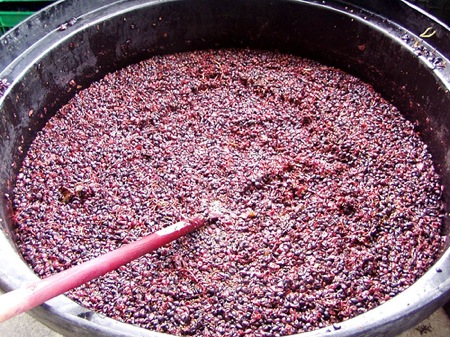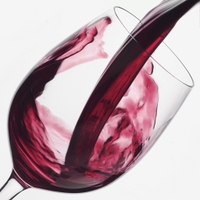With the world going green (or at least trying), the wine world is also trying its best to fit into the market. On a rescent trip to Montalcino Tuscany for a wine fair, I encountered many Brunello makers who were going biological.
So what does it mean to be Bio? Every aspect form the grape growing, to the picking, to the fermentation to the bottling must be biologic. What it means is a lot more work, and therefor a usually more expensive bottle of wine, but it is all natural. No chemicals are used on the vines and fertilizers are traditional- using worms to chow down on old food releasing nutrients good for plants. Harvest is done by hand, something almost completly unheard of in America and yeasts used for fermentation are natural, that is from the skin.

But is all the hard work worth it? In Italy to be known as a 'bio producer' you must pay to be part of an association and only after five years proving that your farm is organic, can you be considered for it. For many small 'aziende' its just not worth it. Many follow the labor intensive process but cant afford the agency fees. Maybe another way of showing one is bio is neccessary? After all, if a wine is 'reserva' or aged longer, it is written on the label just under the type of grape. If a wine is 'superiore' or has a higher level of alcohol that what is typical for the particular grape type, it also is on the label just under the type of grape. So why cant this be done for biological wines? Shouldnt the consumer know if the wine is all natural or not? And shouldnt it be the wine association in general to control this instead of a small group? While you're thinking about it, here are some Bio producers of Brunello that I discovered on my trip. Le Chiuse www.lechiuse.com , Podere Canalino www.poderecanalino.com , Fornacella and our friends at Padelletti www.padelletti.it who follow the process but are not part of the association.

